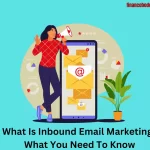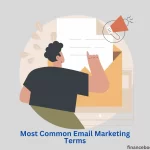Should you buy an email list or not? Perhaps because you are a new business and do not have a consumer base, or your company already has a consumer base but wants to reach more customers;
Whatever the reason, purchasing an email list appears like a simple, low-cost approach to building your company.
However, before you invest your time and money into buying an email list, you need to consider whether it’s the right choice for your business.
In this article, I’ll explore the pros and cons of buying an email list and why there may be better choices for your email marketing strategy.
See also: How to create an email list.
Before I dive deeper into today’s topic, let’s discuss some related definitions you should be familiar with.
What is an Opt-In List?
Have you heard of words like opt-in, subscribe and unsubscribe? When used in the same context, all of these characteristics mean the notion of Opt-In.
The opt-in list contains individuals who:
- Have recently, or have used, your goods or services;
- Agree to receive email updates directly from you;
- Already signed up or registered using an online registration form on your company website, landing page, or social network accounts.
Learn more: What is an email opt-in?
Opt-Out Email List: What is Opt Out?
The Opt-Out list is a collection of email addresses that do not subscribe to newsletters. These data are acquired in a number of methods. For example, purchasing from units specialized in selling unlawful data, collecting information on websites…etc.
Thus, it is simple to deduce that the contacts on this opt-out list do not understand who you are. And they have no need, no interest in your company.
Learn more: What is email opt-out?
In addition, as you may not know, mailbox providers like Gmail, Yahoo, and Hotmail do not consider lists bought or scanned online at all to be lawful.
They term it a spam / unsolicited mass email.
Learn more about email spam.
Since you have an idea of what email opt-in and opt-out are. Let’s now dive deeper into today’s topic.
5 Reasons Why You Should Buy an Email List
1. The Fastest and easiest way to get a target email list
Purchasing email lists may be a rapid and cost-effective alternative if you want to reach a new target base with your services or goods.
Creating your own email list from the beginning might take months and will leave you less time to concentrate on consumers you have already secured. Buying a list directly from a provider means you can rapidly pick and select what sort of demography you want to target, making it simpler to reach a new market.
2. Broaden your reach:
Even if you’ve spent a lot of effort and money creating email lists for your company, there may be some blind spots, such as changes that haven’t been examined, customers you’ve overlooked, or accounts you can’t locate for. Up-to-date contact information.
Buying an email database nearly always results in the identification of new leads. Even if one or two of them convert into frequent paying customers or high paying accounts, getting an email list will be worth it.
New clients from your acquired email list may also suggest you to additional consumers who didn’t know about your company previously, thus increasing your reach.
3. Reduces the arduous process
Buying an email list removes the hard work from your hands and puts it in the care of a vendor. While this may seem hazardous, it may pay off if done efficiently. Creating email lists is time-consuming; you must conduct all the research and marketing and obtain a vast inventory of contacts.
You may be spending this time working on other tasks, and this is where buying email lists come in — they’re quick and give immediate connections. Unlike creating email lists, bought lists free up resources so you may spend more time on the activities that matter. Instead of spending months on them, you may reduce this to as little as a week, meaning you’ll reach more consumers quicker.
If the people reach engage well, this might result in a quicker customer retention rate and faster levels of engagement with your content.
This rapid access to your target audience may work wonderfully alongside your marketing efforts. Still, it’s crucial to note that this will only be effective if you get current and verified leads interested in your services.
4. Reduce dependency on current consumers and customers
Particularly for B2B enterprises, purchasing an email list helps avoid relying highly on several customers. If one of your customers chooses to buy a product from a rival or goes out of business, it may do a lot of harm to your firm. On the other side, buying a mailing list provides you with additional options to broaden your consumer list.
5. An Effective Email List Could Lead to Business Growth
If you acquire an effective email list that targets your audience properly and includes a selection of updated and interested contacts, your potential for company development will improve significantly.
While a manual email list may give the same sort of growth if performed correctly, buying email lists speeds up this process and lowers the time it takes to enhance ROI, customer retention rate, and total income.
As you can see, purchasing email lists is a bit of a risk. There are a lot of potentialities and forces at play, and success rests on the strength of the relationships offered by the vendor. Understanding the opposite side of the coin is vital, so we’ve also developed a case against purchasing lists.
5 Reasons Why You Shouldn’t Buy an Email List
1. The quality of these bought email lists is really low
Sending emails to re-listed lists frequently doesn’t function. Because, in reality, the majority of those email addresses do not exist or are no longer in use.
Many consumers use the incorrect email address when prompted for survey information. Because they are exceedingly bashful and want to keep their details private. Even legitimate techniques for acquiring email addresses do not escape this issue. When you buy an email list, you may get a huge number of dead or useless addresses.
In addition, identifying or reporting spam by a receiver may result in your email or domain being banned. This is a result that every email marketer wants to avoid.
2. Low response rate since the receiver doesn’t know you
Buying an email list indicates you need to take measures to develop a pleasant engagement with your clients. Instead, you think, “Quantity will overwhelm quality.” That implies a mass mailing campaign of any sort will garner you an interested reaction.
However, in the long term, this doesn’t work.
Sending to a bought email list will not establish trust. Moreover, they need to be categorized and object-oriented, and your campaign will not be able to target the correct consumers.
Also, as you send marketing emails to this buyout list, understand that many people are doing the same thing as you. You’re not the only one mailing them. The receiver may be “tired” of hundreds of adverts from different units. As a consequence, campaigns that submit these lists generally achieve fewer than 2% open rates.
3. Reputable email marketing companies oppose purchasing lists
It would be nice if you also realized that hiring a reliable provider is vital to launch an email marketing strategy. It is one of the primary aspects that influence whether your campaign is effective or not.
Any credible email marketing company, like Amazon SES, SendGrid, Mailchimp, etc., will not be accessible when you use the bought list. That implies your account will soon be locked out when you begin an email marketing campaign with your bought email list. This impacts and affects your marketing.
4. Low Inbox Rate
Whether an email lands in the Inbox or Spam folder in the recipient’s inbox relies on various variables such as:
- Outgoing email server (domain name, IP address, configuration)
- Email address
- Email subject & content (does it include numerous spam-related keywords, does it contain harmful links, image, and text ratio)
- Spam filtering technique for each kind of email client
- Customer data
While analyzing spam sources, Inbox providers nowadays have incorporated the behavioral factor of receivers engaging with emails to consider. The statistics on the open rate, deleting emails as soon as they are received, and flagging spam/spam complaints….etc. clearly indicate them.
Sending emails to sales data generally has a poor open rate, a large number of bounces, and a high complaint rate. The signals are certainly adequate to indicate that they are opt-out lists. Unauthorized sender. As a consequence, mailbox providers will reject emails received from this source or shift them to spam.
5. Buying and selling email lists is unlawful
In America, Decree 90 stipulates the purchasing or sale of email address lists. Without the recipient’s consent, it is unlawful and will be severely penalized.
What about email marketing service providers? Can they give you an email list? Definitely NOT.
You may also come across many websites that share email addresses. You need to download it. But they are similar to listings for sale online, which do not work.
The best solution is to build your own customer database.
Alternatives to Buying an Email List
If you’re not sure if purchasing an email list is the appropriate solution for your company, there are alternate methods to develop your email list.
1. Rent an email list.
Also, working with a list provider, you select a section of people to contact — but you never truly control the list. As a result, you cannot see the email addresses of the people you’re contacting. Therefore you must work with the provider to send out your email.
2. Own an opt-in email list from online visitors.
Have a compelling offer on your website and make it simple for them to join your email list. Just concentrate on obtaining an email, don’t bog your email sign-up form down with any additional information. The trick here is you need to have a fantastic offer.
Just writing “sign up for my newsletter” will accomplish very little. Understand why someone is visiting your site and provide them with something they desire. For example, I worked on a retail site that had no pricing. You had to call the firm to acquire an estimate for everything.
Guess what the number one technique to generate email sign-ups was? Putting “Download Pricelist” on the online form. This was so compelling that altering the headline to “Download Catalog” dropped email sign-ups by 81%.
3. Using different social media channels.
Facebook makes it extremely simple to upload a list of emails and target self-serve advertising to clients on Facebook with the same email address. This may be an efficient technique for interacting with those consumers in a manner they’d want to be reached.
I hope it gives you a better idea of why you shouldn’t buy email lists from firms and that you’ve other choices. Get inventive and always think about your consumer first.
How to Build a Healthy and Effective Email Marketing List?
You can grow your email list in a positive way without buying a list. One of the most effective ways is to use registration forms on your website. Next, add a sharing form that links them to social networks. Also, you need to stay active on social channels. This will yield great results!
Besides, tap into your existing customer base. Ask customers to sign up every time they buy something and offer incentives if they promote it widely.
Be patient because this takes time and effort.
Conclusion
So, should you buy an email list? The answer is it depends. While purchasing an email list may seem like a fast and straightforward way to expand your email list, it may come with major drawbacks. Buying an email list may harm your reputation, result in poor interaction rates, and even lead to legal concerns.
Instead of purchasing an email list, try alternate strategies to create your email list, rent an email list, or utilize social media advertising. These tactics require more time and effort but may lead to a more engaged and responsive email list in the long term.
In conclusion, the choice to acquire an email list should not be made carelessly. Make sure you assess the advantages and drawbacks and examine the alternatives before making a choice. Remember, developing an email list takes time and work, but the benefits are ultimately worth it.
Good luck!
FAQs
Is it legal to buy an email list?
Buying an email list is allowed in certain countries, but it’s unlawful in others. Ensure you verify your nation’s regulations before you contemplate purchasing an email list.
Can purchasing an email list affect my reputation as a business?
Yes, purchasing an email list may ruin your reputation as a firm. People are more likely to designate your emails as spam if they have yet to permit you to contact them, which might damage your deliverability.
How can I know whether an email list supplier is reputable?
Before you acquire an email list, conduct your homework on the vendor. Look for reviews and comments from previous customers, and make sure the service has a strong reputation in the business.
Is purchasing an email list cost-effective?
Buying an email list can be expensive, and you may not see a return on your investment. It’s crucial to examine if the expense of obtaining an email list exceeds the possible advantages.





